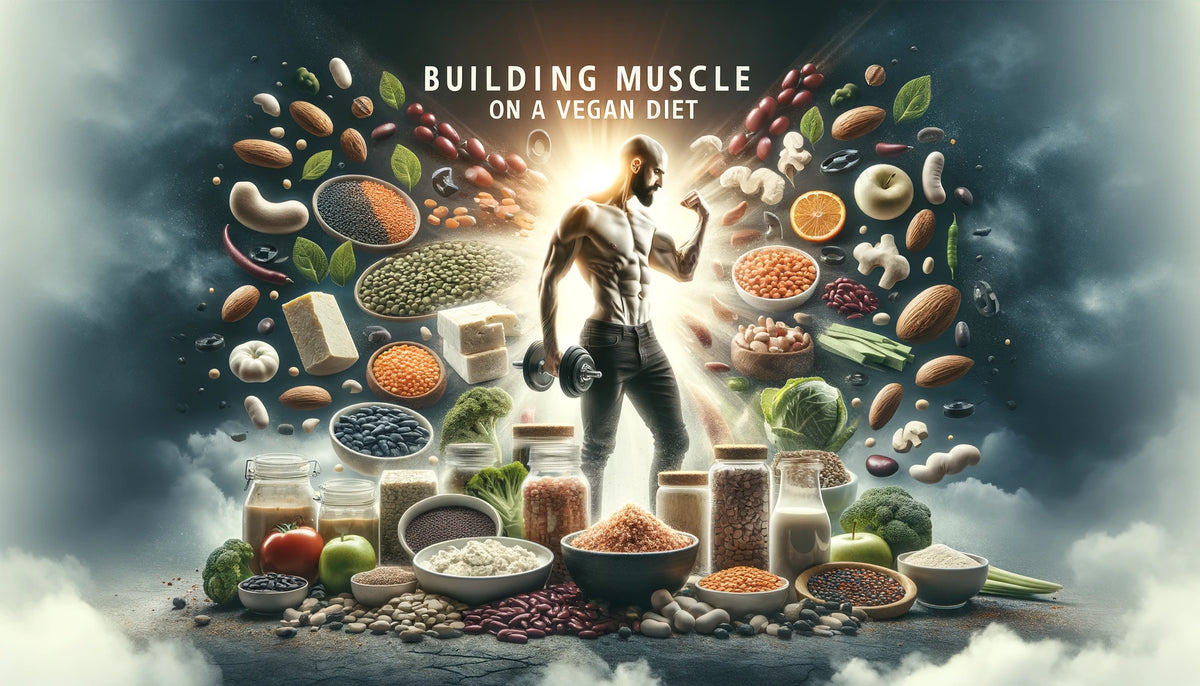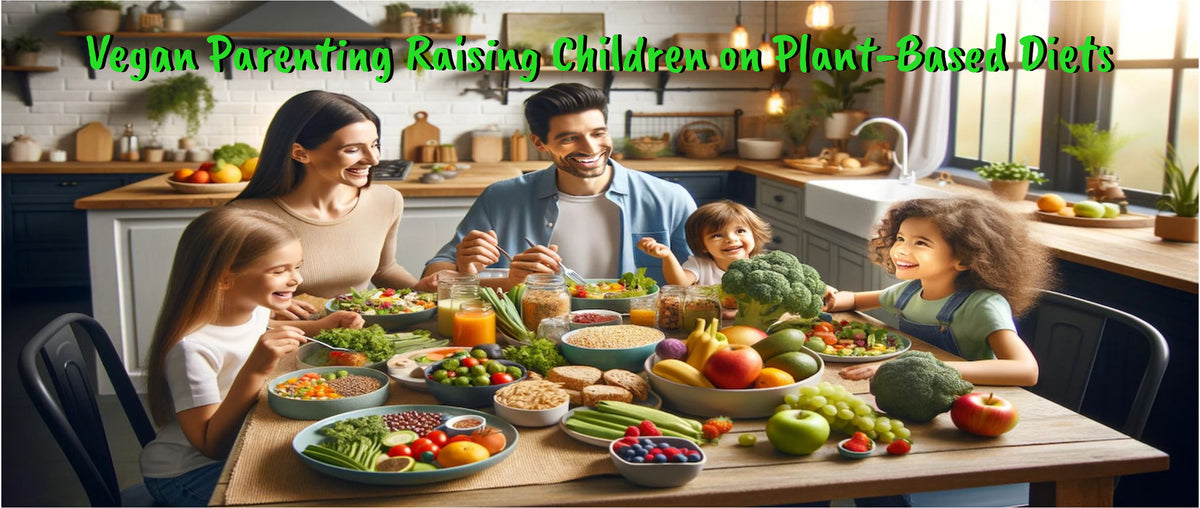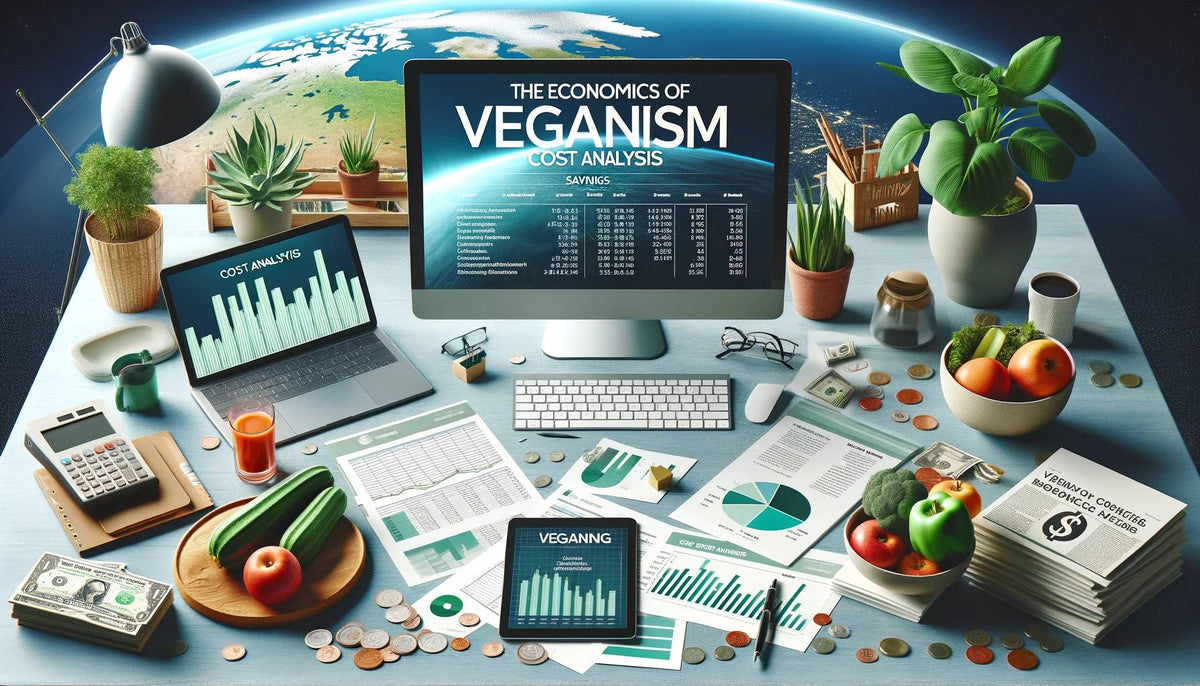Building Muscle with Vegan Diet
Building muscle on a vegan diet is not only possible but can be incredibly beneficial for both your health and the environment. This comprehensive guide will walk you through everything you need to know about gaining strength and mass while adhering to a plant-based lifestyle.
Key Takeaways
- A well-planned vegan diet can provide all the necessary nutrients for muscle building, including proteins, carbohydrates, and fats.
- Plant-based proteins, when combined properly, can offer all essential amino acids needed for muscle repair and growth.
- Carbohydrates are crucial for energy and replenishing glycogen stores, while healthy fats support overall health and hormone production.
- Supplements such as Vitamin B12, Omega-3 fatty acids, and protein powders can be beneficial for covering nutritional gaps.
The Science of Muscle Building on a Vegan Diet
When it comes to building muscle, the nutrients you feed your body are just as important as the workouts you perform. Vegan athletes and bodybuilders have proven that plant based foods provide all the necessary components for muscle growth, recovery, and overall health.
Why Do You Need Protein to Build Muscle?
Protein is the cornerstone of muscle repair and growth. After a strenuous workout, your muscle fibers need protein to repair the micro-tears that occur during exercise, leading to muscle growth. The myth that Vegan products cannot supply adequate protein is outdated. Plant-based proteins like quinoa salad recipes, legumes, and plant-based protein powders are excellent sources that support muscle synthesis as effectively as animal-based proteins.
- Quinoa: A complete protein containing all nine essential amino acids.
- Legumes: Beans, lentils, and chickpeas offer substantial protein and fiber.
- Plant-Based Protein Powders: Made from peas, rice, or hemp, these powders are versatile and can be added to smoothies or meals for a protein boost.
Why Do You Need Carbohydrates to Build Muscle?
Carbohydrates are your body's primary energy source. They fuel your workouts and are crucial for replenishing glycogen stores in your muscles, which get depleted during exercise. Opt for complex carbs found in whole grains, fruits, and vegetables to ensure a steady energy supply.
- Whole Grains: Brown rice, oatmeal, and quinoa provide long-lasting energy.
- Fruits and Vegetables: Packed with vitamins, minerals, and carbs for recovery.

Essential Nutrients for Vegan Athletes
Athletes following a vegan diet need to pay special attention to their intake of certain nutrients to ensure they're supporting muscle growth and overall health.
Complete vs. Incomplete Proteins
Understanding the difference between complete and incomplete proteins is crucial on a vegan diet. A complete protein contains all nine essential amino acids necessary for the body. While many plant-based sources are incomplete, combining different foods (like rice and beans) can ensure you're getting all the amino acids your body needs.
Vitamins and Minerals
Certain vitamins and minerals are key for muscle function and recovery, including iron, calcium, and vitamin B12. Vegan sources include:
- Iron: Spinach, lentils, and fortified cereals.
- Calcium: Almond milk, tofu, and leafy greens.
- Vitamin B12: Nutritional yeast and fortified plant milks.
Best Plant-Based Foods for Muscle Building
Incorporating a variety of plant-based foods is essential for not just muscle building but overall health. Here are some top choices for vegan athletes:
- Vegan Cheese and Butter: Great for adding flavor and calories to meals without compromising your diet.
- Cashew Butter: High in protein and healthy fats, perfect for smoothies or as a snack.
- Vegan Mayo: A versatile condiment that can add a creamy texture and healthy fats to your meals.
- Cholesterol-Free Foods: Essential for heart health, available in abundance in a vegan diet.
Focusing on plant-based products and fat-free butter alternatives can also help in maintaining a healthy weight and cholesterol level, contributing to better performance and endurance.
Also Read
Planning Your Vegan Muscle-Building Diet
A well-planned diet is crucial for muscle growth, recovery, and overall health. Here's how to structure your vegan diet for optimal results:
Meal Planning Tips
Strategic meal planning ensures you're getting a balanced intake of proteins, carbs, and fats. Start by dividing your plate into sections for each macronutrient, focusing on variety to cover all essential amino acids and micronutrients. Incorporate vegan food products like Vegan Cheese and vegan butter for added flavor and nutrients. Cashew Butter and vegan mayo, fat free cheese can enhance meals with healthy fats and extra protein.
Supplementation
While a varied vegan diet can meet most nutritional needs, certain supplements might be beneficial:
- Vitamin B12: Essential for nerve function and energy production.
- Omega-3 Fatty Acids: Look for algae-based supplements to support heart health and reduce inflammation.
- Protein Powders: A convenient way to increase your protein intake, especially post-workout.
Foods to Eat and Avoid
Foods to Eat
Focus on whole, nutrient-dense plant-based foods:
- Proteins: Lentils, chickpeas, tempeh, and plant-based protein powders.
- Carbohydrates: Whole grains, fruits, and vegetables for energy and fiber.
- Fats: Avocados, nuts, seeds, and plant-based oils for healthy fats.
Foods to Avoid
Minimize or eliminate:
- Highly Processed Foods: Often contain unhealthy fats and additives.
- Animal Products: Completely avoid for a vegan diet.
- Excess Sugars: Can lead to energy crashes and weight gain.
Why Follow A Vegan Diet for Building Muscle?
The benefits of a vegan diet extend beyond muscle building. It's associated with lower risks of heart disease, hypertension, type 2 diabetes, and certain types of cancer. Moreover, plant-based products and cholesterol-free foods promote a healthier body weight and reduced inflammation, enhancing recovery times and athletic performance.
By focusing on fat-free butter, vegan items, and other plant-based products, you not only support your fitness goals but also contribute to environmental sustainability and animal welfare.
Do you enjoy vegan food? We have a list of vegan restaurants in India to help you find delicious options in your area!










